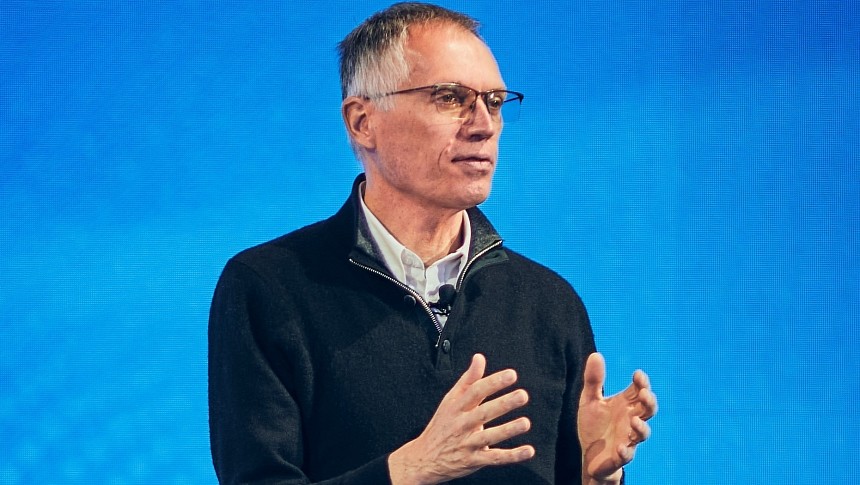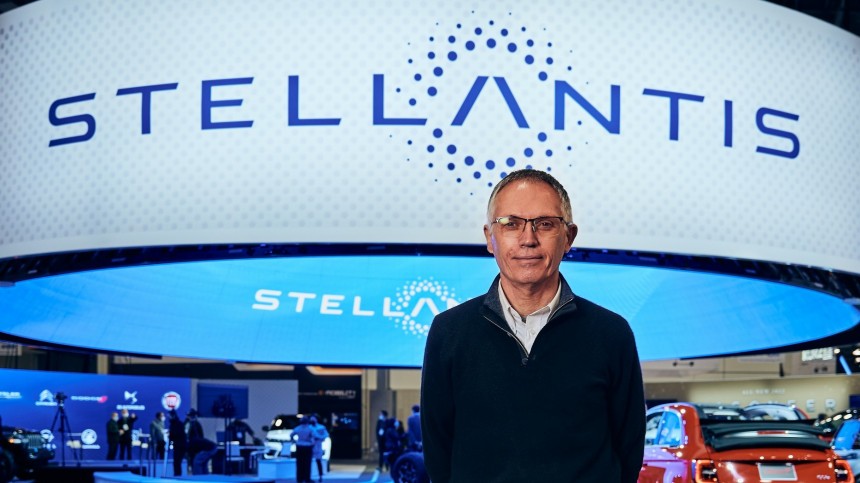Some episodes just show how detached politicians are from real life. Take Bruno Le Maire, the French Finance Minister. In an interview with BFM TV, Le Maire said Stellantis should produce the Peugeot e-208 in France out of "economic patriotism." Carlos Tavares had to remind the French Minister and everyone else that money does not hold a passport: it goes wherever it is most welcome.
The Stellantis CEO told Le Figaro that relocating the Peugeot 208 project "would not be in the interest of the company nor the country." He later elaborated on that at the presentation of the STLA Medium platform. According to Tavares, the automaker's primary focus is clients, who "expect high quality at an affordable price." He said electric cars cost 40% more to manufacture than internal combustion-engined (ICE) vehicles and that you just can't expect that the middle class will pay 40% more for an automobile.
Politicians have been trying to overcome that in some countries by offering incentives. In Germany, that created a market in which people took the incentives and sold their battery electric cars to other countries for full price just to buy new BEVs and apply for the incentives again. That shows how some of these strategies to increase the adoption of electric cars can backfire. Yet, Tavares had more to say about how harmful it can be when these "people's representatives" want to interfere with situations they either do not know much about or pretend not to fully understand to please their voters.
When the Stellantis CEO tried to explain why moving the Peugeot 208 production to France would not suit the country, he said that his company already produces 12 electric cars there. He also stressed that it has to remain competitive. Although Tavares did not go into specifics, it is not hard to understand what he meant.
Occupying one factory with a model that will not be profitable will hurt the financial feasibility of the entire plant, which may eventually lead to killing it and handing the pink slip to its workers. That would leave the country without thousands of jobs, which is why Tavares urged governments to let automakers make their own decisions.
In his words, they are being pushed to replace "a technology that has been optimized, sharpened, for more than a century" with "a technology that is still in its infancy." Tavares said that Stellantis engineers have torn down half a dozen electric cars currently for sale for a seminar that happened about two weeks ago. The conclusion was that "the technology is not ripe. Nothing is optimized."
A recent example of what he means happened with the Hyundai IONIQ 5. Its charging port overheats and stops charging at 48A EV chargers due to this problem. Hyundai's solution was to lower the charging speed, which made customers furious. You can also think about the inverters that frequently fail in Tesla vehicles, leaving them stranded in dangerous situations, battery packs that die and have to be replaced at $20,000 a piece… Just check how little these relevant issues are being discussed: you'll begin to understand why politicians may fail to understand the situation while pushing for a pretense solution for climate change that may not make that much of a difference. There are other things that they should know by heart. Still…
Le Maire evoked "a little economic patriotism" from Stellantis. Supposing such a thing even existed, is the automaker French? Or is it Italian due to its FCA brands? Perhaps it is American… If you check where its headquarters are, Stellantis is Dutch. Do you think Nissan refused French money when it was on the brink of bankruptcy by the end of the 1990s? That only became a problem when Carlos Ghosn tried to consolidate the Alliance he established between Renault, Mitsubishi, and the Japanese carmaker. Again, money knows no borders.
Just a handful of people may make economic decisions based on their love for any country; no company ever will. If they have better chances of survival making their products in a place where costs are lower, why wouldn't they? Would buyers purchase more expensive products just because they are manufactured locally? Forget it, particularly in times of inflation and an increasingly worrying cost of living.
The economic reasoning behind industrial production is pretty simple: either the manufacturing expenses are lower or productivity is higher. If you can join both guidelines, even better. Summing up, French workers would need at least to deliver more cars than those countries that manufacture them at lower costs, which is probably very difficult to achieve with standard production methods for global products. The cheaper the vehicle – such as the Peugeot 208 – the more pressing these requirements are. To make matters worse, affordable cars do not sell that well anymore. Just remember what happened with the Tata Nano in India: people did not want to buy it because it was the cheapest automobile in the world. Customers did not want to be seen as poor people who could only afford a Nano – even if that was precisely the case.
Apart from failing to understand this simple economic truth, politicians also miss why their countries are not competitive. Some of them probably were elected after heading unions that conducted major strikes to fight for higher wages, fewer work hours – and even fewer days as the four-day workweek some of them are implementing – more extended paternity and maternity leaves, and so forth. That all improved the lives of millions of employees and their families, but there's a cost associated with these benefits. Countries that offer them can't compete with those that don't.
Please don't get me wrong: this is not an attack on these life improvements. I am just acknowledging how things are. These are the rules of the game, and patriotism will not alter them. Politicians may change them, such as determining that cars that are not made in their countries will pay higher taxes or even that they will not be sold in their countries at all. Brazil tried that in the 1970s by blocking imports and ended up with a damaged automotive industry, a stunted internal market, and cars that were compared to carriages by the president who finally lifted the import embargo.
Nowadays, such legal barriers would lead countries to face World Trade Organization (WTO) sanctions and reduced production volumes: they would not be able to export what they managed to make. Even if that didn't happen in such a scenario, voters would likely protest because the cars they want would be more expensive or wouldn't even be for sale.
Can a country stand buying only the vehicles made in its territory? Depending on its size, it may, but the automotive industry installed there would probably suffer: it would need to export, as China and the US currently do. Japan and South Korea would never have grown their economies to their current sizes without massive automobile exports. Countries with internal markets below a million vehicles per year would not have car factories – at least not from existing carmakers. The automotive industry evolved in a way it only makes sense with massive production scales. Remember when Sergio Marchionne said no company making fewer than 6 million vehicles per year would survive? Bingo.
Anyone unhappy about how industrial activity is migrating from their countries will either have to tackle the problem for what it is or just dance to its tune. The issue is structural: it has nothing to do with patriotism or any sort of belief. It is the economy and the way it works nowadays. For that to change, you'd have to modify the entire economic model we currently follow for something we have never tried. A circular economy that did not measure success by the number of products we sell would be a good start.
Politicians have been trying to overcome that in some countries by offering incentives. In Germany, that created a market in which people took the incentives and sold their battery electric cars to other countries for full price just to buy new BEVs and apply for the incentives again. That shows how some of these strategies to increase the adoption of electric cars can backfire. Yet, Tavares had more to say about how harmful it can be when these "people's representatives" want to interfere with situations they either do not know much about or pretend not to fully understand to please their voters.
When the Stellantis CEO tried to explain why moving the Peugeot 208 production to France would not suit the country, he said that his company already produces 12 electric cars there. He also stressed that it has to remain competitive. Although Tavares did not go into specifics, it is not hard to understand what he meant.
In his words, they are being pushed to replace "a technology that has been optimized, sharpened, for more than a century" with "a technology that is still in its infancy." Tavares said that Stellantis engineers have torn down half a dozen electric cars currently for sale for a seminar that happened about two weeks ago. The conclusion was that "the technology is not ripe. Nothing is optimized."
A recent example of what he means happened with the Hyundai IONIQ 5. Its charging port overheats and stops charging at 48A EV chargers due to this problem. Hyundai's solution was to lower the charging speed, which made customers furious. You can also think about the inverters that frequently fail in Tesla vehicles, leaving them stranded in dangerous situations, battery packs that die and have to be replaced at $20,000 a piece… Just check how little these relevant issues are being discussed: you'll begin to understand why politicians may fail to understand the situation while pushing for a pretense solution for climate change that may not make that much of a difference. There are other things that they should know by heart. Still…
Just a handful of people may make economic decisions based on their love for any country; no company ever will. If they have better chances of survival making their products in a place where costs are lower, why wouldn't they? Would buyers purchase more expensive products just because they are manufactured locally? Forget it, particularly in times of inflation and an increasingly worrying cost of living.
The economic reasoning behind industrial production is pretty simple: either the manufacturing expenses are lower or productivity is higher. If you can join both guidelines, even better. Summing up, French workers would need at least to deliver more cars than those countries that manufacture them at lower costs, which is probably very difficult to achieve with standard production methods for global products. The cheaper the vehicle – such as the Peugeot 208 – the more pressing these requirements are. To make matters worse, affordable cars do not sell that well anymore. Just remember what happened with the Tata Nano in India: people did not want to buy it because it was the cheapest automobile in the world. Customers did not want to be seen as poor people who could only afford a Nano – even if that was precisely the case.
Please don't get me wrong: this is not an attack on these life improvements. I am just acknowledging how things are. These are the rules of the game, and patriotism will not alter them. Politicians may change them, such as determining that cars that are not made in their countries will pay higher taxes or even that they will not be sold in their countries at all. Brazil tried that in the 1970s by blocking imports and ended up with a damaged automotive industry, a stunted internal market, and cars that were compared to carriages by the president who finally lifted the import embargo.
Nowadays, such legal barriers would lead countries to face World Trade Organization (WTO) sanctions and reduced production volumes: they would not be able to export what they managed to make. Even if that didn't happen in such a scenario, voters would likely protest because the cars they want would be more expensive or wouldn't even be for sale.
Anyone unhappy about how industrial activity is migrating from their countries will either have to tackle the problem for what it is or just dance to its tune. The issue is structural: it has nothing to do with patriotism or any sort of belief. It is the economy and the way it works nowadays. For that to change, you'd have to modify the entire economic model we currently follow for something we have never tried. A circular economy that did not measure success by the number of products we sell would be a good start.











